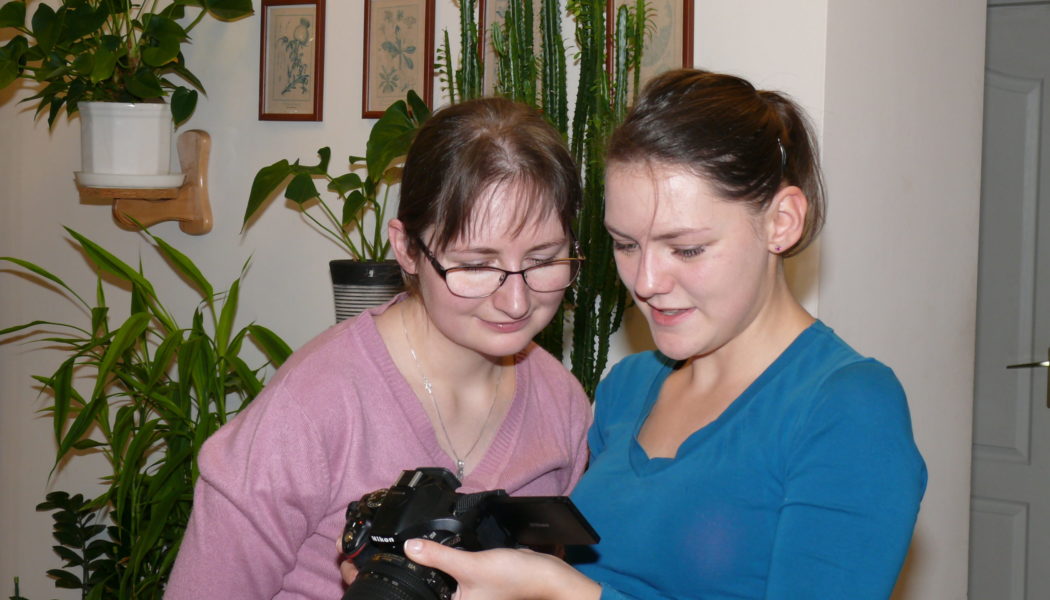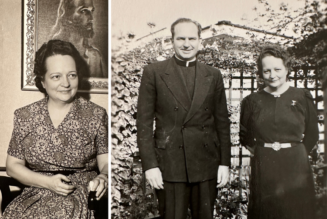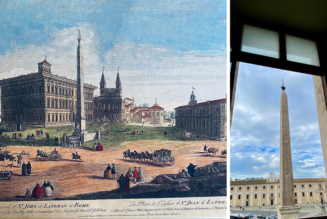In April, Krakow Archbishop Marek Jędraszewski issued an edict opening the cause for beatification for Helena Kmieć, a 25-year-old Polish lay missionary killed in Bolivia in 2017. This outgoing young woman, who was passionate about music and travel, received the strength to serve others from her close relationship with Jesus. She could become another millennial, after Blessed Carlo Acutis, to be raised to the altars.
Servant of God Helena Agnieszka Kmieć was born on Feb. 9, 1991, and was brought up in Libiąż, a small town about an hour’s drive west of Krakow. Her mother died six weeks after her birth, and her father, Jan, remarried Barbara Zając. Helena said that she had three mothers: her biological mother; Barbara; and the Blessed Mother. The Kmieć family is very devout, and Jan Zając, the emeritus auxiliary bishop of Krakow, is Helena’s great-uncle.
In the report on her life, the cause’s postulator, Father Pawel Wróbel, highlighted her “deep conviction that as a believer she had a duty to share with other people the experience of meeting God,” adding, “Almost every day during her studies, she participated in the Holy Mass, which was an extremely important point of the day for her.”
In an interview with Gość Niedzielny, Poland’s leading Catholic weekly, Father Wróbel said that, during her cause, he wants to focus “not on her tragic death, but on her beautiful life.”
“There was plenty of God everywhere in the Kmieć family home,” Father Paweł Król, who, for 10 years, worked at Helena’s home parish in Libiąż, told the Register. He explained that this was tangible, reflected in home décor: The house’s walls were covered in icons. “For Helena, it was natural that one must have a relationship with God in everyday life and that this should not be something forced but something we experience with enthusiasm and joy.”
Helena was a brilliant student: She skipped a grade and won a scholarship to attend a prestigious high school in England. Additionally, she had a musical bent and attended a music school; she often sang and played the guitar in her parish choir and during walking pilgrimages from Libiąż to Jasna Góra, Poland’s preeminent national shrine.
However, as her sister Teresa Kmieć told the Register, Helena had a very strong emotional attachment to Poland, and after not being admitted to study medicine at Oxford, the young woman returned home, where she studied chemical engineering at the Silesian University of Technology in Gliwice. After graduating, Helena became a flight attendant.
Although Helena loved music, traveling and hiking in the mountains, perhaps her greatest passion was helping others, so she quickly became interested in volunteering. When World Youth Day was held in Krakow in 2016, her home parish in Libiąż was in dire straits after the coordinator of the parish committee could not get vacation days from work for that time. Giving her little time to commit to a decision, Father Król asked Helena to take over these duties, believing her to be a perfect candidate due to her language and interpersonal skills. Helena was able to transfer her own vacation days and agreed to lead the group within one day. According to Father Król, if Helena is canonized, she could be a fitting patron saint of volunteers.
Eventually, Helena joined the Salvatorian Missionary Volunteers, a group of about 100 young laypeople from across Poland who spend a year of spiritual formation before going on missions abroad. First, Helena helped organize day camps for children in Hungary and Romania and went to Lusaka, Zambia, where she taught English, math and the Gospel to street children and children from poor families as well as oversaw basic needs, including meals. Helena was warned that Zambia was an unsafe country, but her impulse to serve others was stronger.
Upon returning to Poland, Helena’s earthly plans were to continue her career as a stewardess and to marry her boyfriend and start a family. Yet during a retreat, Helena wrote down her life’s goals on a piece of paper that was found after her death: Learn Spanish, form a Catholic ministry for flight attendants, and become a saint.
Helena’s goal to learn Spanish was related to her mission to Cochabamba, Bolivia, where she traveled to help prepare a preschool run by nuns. Before the orphanage was opened, however, a man broke into her bedroom and killed her. Although her killer was identified, convicted and is now incarcerated, the motives of his crime are unclear. He appears to not have been motivated by hatred for the faith, and so her cause for beatification will be related to her heroic virtue, not martyrdom.
In an interview with Vatican Radio, Father Wróbel said that she wrote in her application to go on the mission that she received God’s grace, which she defines as five times “G”: “A Gift Gratuitously Given from God to Give [others]” (five time “D” in Polish: Dar Darmo Dany Do Dawania).Helena was born the same year as Blessed Carlo. When asked if she sees similarities between the two, Teresa Kmieć replied that the Eucharist was at the center of the lives of both young people; Blessed Carlo famously called the Blessed Sacrament his “highway to heaven.” Teresa doubts that her sister was ever not in a state of sanctifying grace and recalls that she never saw her not receive Communion during Mass and knows she regularly went to confession.

When Father Król visited Helena’s family shortly after learning about her tragic death, he said that although her parents’ sadness was undeniable, Barbara nevertheless expressed joy that Helena had received Holy Communion the evening before being killed and so died in a state of grace.
Father Król pointed to another similarity: Much like Blessed Carlo was a self-professed “computer geek” who created websites about Eucharistic miracles, Helena Kmieć had a photo blog and Facebook profile. Her profile portrays her as an ordinary modern young adult who although very pious was very much like her peers. One profile pic contains her comment: “They say that the best makeup a woman can wear is a smile. But lipstick doesn’t hurt. ;).”
Knowing of Helena’s later tragic fate, reading her last Facebook post, published 15 days before her death, is a moving experience. The post contains a photo album wittily titled “Bolivia: Mission Possible” and features photos of Helena and a fellow volunteer smiling ear to ear upon arrival at an airport in the South American country.
After her cause for beatification was opened, her postulator said that it is a “sign of the times” that the Church will study Helena’s email correspondence and posts and comments in social media.
When asked how Helena can be a model for her fellow millennials, Teresa says that her sister’s life was evidence that one can be “in love with God yet 100% in the world. One does not have to live in a monastery to have a close relationship with God. When our relations with God are in order, we will be happy not only in heaven, but also on earth.”






